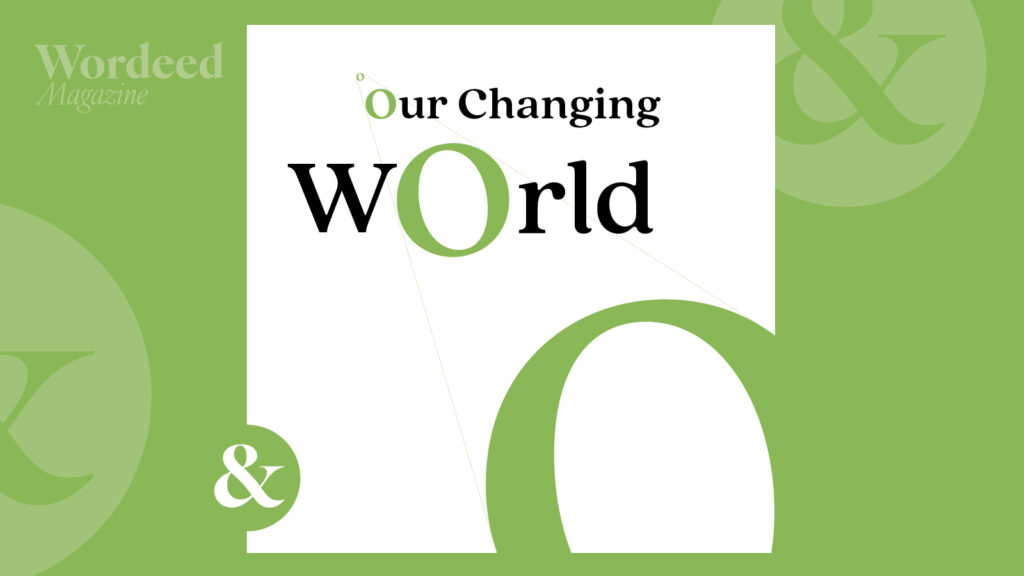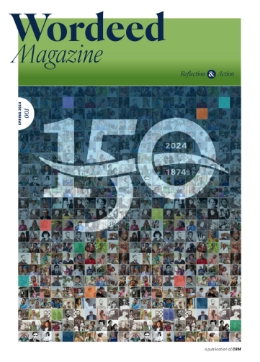The Church in Canada looks much different than it did fifty years ago. The relevance of the Church as an institution, the level of regard and respect for the role of pastors, and the influence of the Church in society has changed. For some, this change inspires hope for the future. For others, it feeds an understandable fear of what could come next.
“When I talk to church leaders, often I find they start with where they’re struggling to find hope,” says Leanne Friesen, Executive Minister for Canadian Baptists of Ontario & Quebec. “Generationally, older church members are worried that there aren’t enough young people, and among young people there is a sense that the Church has let them down through scandals and difficult situations.
“And still, I have yet to visit a church that isn’t asking, ‘What can we do about it?’ They are seeking to understand and figure out what some next steps could be to bridge some of those divides.”
In April 2024, the executive leadership of our Canadian Baptist partners—Raphael Anzenberger, General Secretary for Union D’Églises Baptistes Francophones du Canada; Jennifer Lau, Executive Director for CBM; Renée MacVicar, Executive Minister for Canadian Baptists of Atlantic Canada; Rob Ogilvie, Executive Minister for Canadian Baptists of Western Canada; and Leanne—had a conversation with our new National Convenor, Harry Gardner, about the current realities of the Church in Canada and our hope for the future as part of the global Church.
“We have a fear of change, or some do, at least, and there’s a lot of uncertainty,” says Rob. “But the Church is 2,000 years old; we’ve known it in its context of the last 50 or so years. The changes happening now are not all wrong or bad. I have no doubt that the Church will continue.”
“Right now, there is unprecedented growth in places like the Middle East, North Africa, and East Asia,” says Jennifer. “The gospel continues to grow, Christianity continues to grow in these places. There are times of decline and times of growth in the Church. Let us not spell the end of how the Spirit is working just because it’s not working in the [ways we’re] used to.”
The rise of Christianity beyond the Western world is hopeful, and with the increase of globalization and migration, the world is coming to Canada. Moncton and Halifax are among the fastest growing cities in Canada largely due to newcomers. Renée has seen firsthand the changing landscape in Maritime churches.
“Many newcomers arrive with a strong faith and a desire to connect to a faith community and there’s hope in that,” she says, “It’s an opportunity for vibrancy in the local church. But with the hope I also hear a desire to navigate this well and right, along with fear of not knowing how to do that and fear that it might change the Church.”
Raphael notes that these feelings of hope and fear are present in French-speaking Canada, too. “What do we do with this wave of migrants coming from French-speaking countries? How do we integrate them within our existing churches? There’s a want there and an excitement, but at the same time, how do we tackle that and make it happen? It’s a challenge, but a great opportunity.”
It’s easy to become stuck in the cycle of questioning the best next steps without stopping to see where the Spirit is at work in our churches, communities, and cities.
“When I visit churches,” notes Leanne, “I sometimes do a sermon based on the passage in Acts where Peter says to the blind beggar, ‘Silver and gold I have none, but what I have I give you.’ We don’t have as much silver and gold as we used to—meaning the resources, the prestige, the things that impress others. We can’t keep up with what the world offers, but the great news is that we have the power of the living God. When we remind ourselves of that, I think that’s when people start to feel hopeful again.”
So, what does this mean for the future of the Canadian Baptist Church?
One of the benefits of coming through a challenging season is finding renewed clarity in our identity and what it means to be a Canadian Baptist.
“Churches and leaders want to talk about the future, as opposed to dwelling on the difficult and challenging cultural and societal issues that are playing out in the life of the Church,” says Rob. “We can’t ignore these issues, but we can’t lose sight of the Church as we work through them.”
Jennifer sees a shift in how we approach mission. “As we try to walk alongside churches, it’s not just about mission engagement in the traditional sense. Mission is now figuring out what it means to live missionally where you are, how your own world is changing, and what your identity is in that. This will help us to be better prepared for what is to come.”
We live in the tension between grieving what the Church in Canada once was and embracing what the future holds. While this present tension comes with challenges and changes, it also comes with the reminder that we are part of something much greater. There is great hope in hearing our leaders share what God is doing across Canada and how they are thinking creatively to develop ministries that serve their communities, towns, and cities effectively. There is a hunger for authentic Christian community not as a retreat from the world but as a place where we can learn from one another how to live our lives as disciples of Jesus.
God’s Church is growing in many places around the world, and we in Canada are still part of Christ’s plan for it. The challenges of today can be seen as the opportunities for tomorrow—opportunities for new life, increased vibrancy, and greater clarity of what it means to be Canadian Baptists—so long as we’re prepared to trust God’s leading and step into them faithfully.




